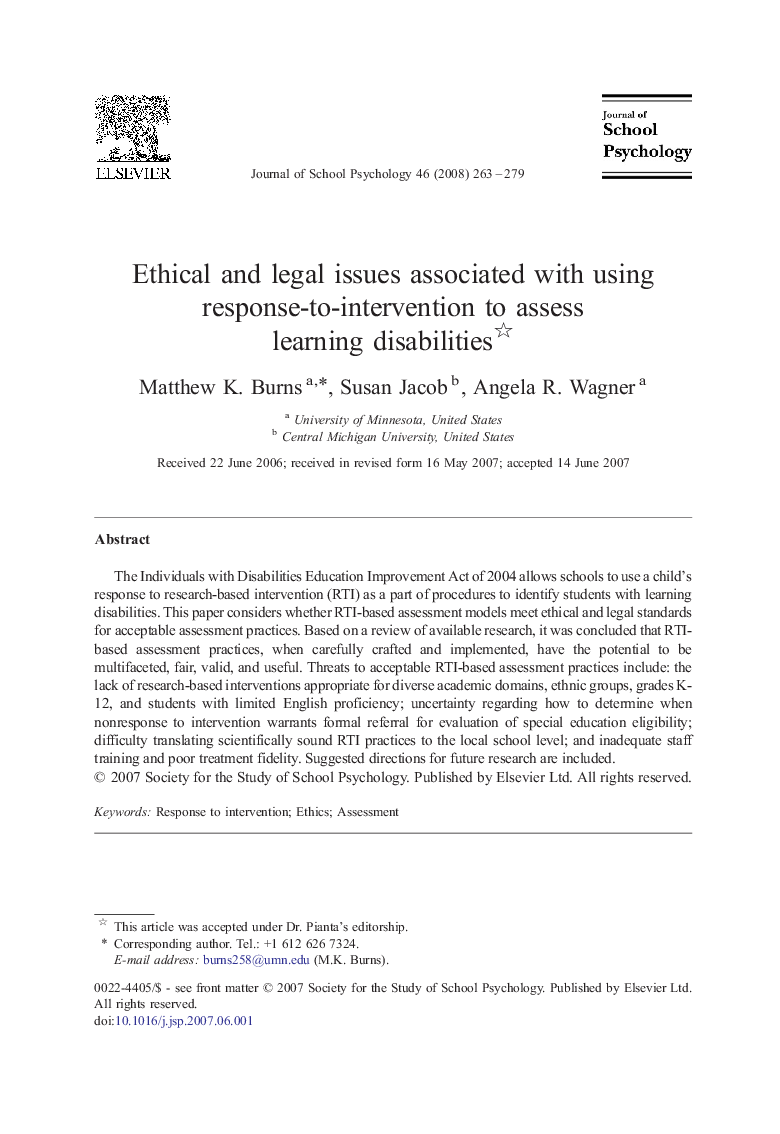| Article ID | Journal | Published Year | Pages | File Type |
|---|---|---|---|---|
| 363871 | Journal of School Psychology | 2008 | 17 Pages |
The Individuals with Disabilities Education Improvement Act of 2004 allows schools to use a child's response to research-based intervention (RTI) as a part of procedures to identify students with learning disabilities. This paper considers whether RTI-based assessment models meet ethical and legal standards for acceptable assessment practices. Based on a review of available research, it was concluded that RTI-based assessment practices, when carefully crafted and implemented, have the potential to be multifaceted, fair, valid, and useful. Threats to acceptable RTI-based assessment practices include: the lack of research-based interventions appropriate for diverse academic domains, ethnic groups, grades K-12, and students with limited English proficiency; uncertainty regarding how to determine when nonresponse to intervention warrants formal referral for evaluation of special education eligibility; difficulty translating scientifically sound RTI practices to the local school level; and inadequate staff training and poor treatment fidelity. Suggested directions for future research are included.
